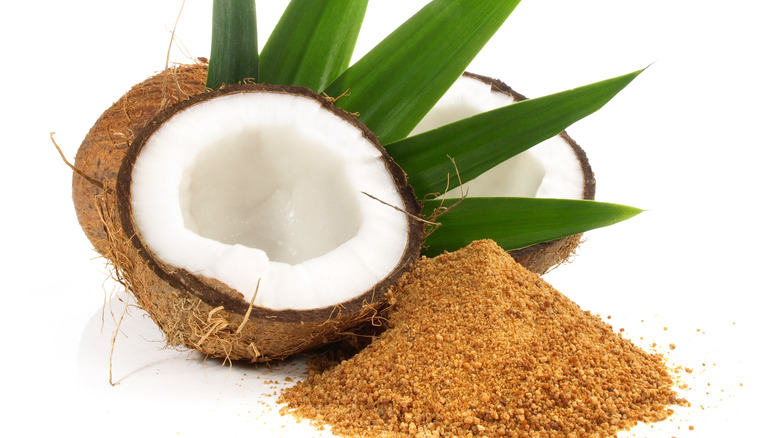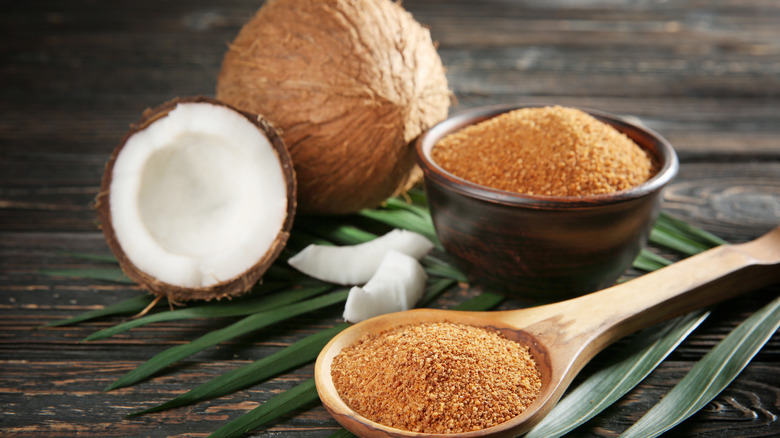What You Should Know Before Using Coconut Sugar
Coconut sugar, which is made from the sap of a coconut palm flower, has become a popular natural sugar alternative in recent years. Thanks to the increasing awareness of the negative health effects caused by eating too much white sugar, many people have been turning to natural alternatives to sweeten up their dishes and drinks. Since it comes from a fruit, you might be inclined to believe coconut sugar is a healthier option than regular table sugar. However, that is unfortunately not the case.
The nutritional value of coconut sugar is fairly low, and it contains just about as many calories and fructose as regular sugar, according to Today. "Clients ask me about coconut sugar because they've heard, often from food bloggers, it's a better option. If my clients select coconut sugar, I tell them to consider it the same as baking with white or brown sugar," Rachel Swanson, a California-based licensed dietician and nutritionist, told Today.
According to Healthline, coconut sugar does retain some trace amounts of nutrients that are found in coconuts, like iron, calcium, and potassium, but in such small quantities it is unlikely to have any effect unless you ate piles of the stuff. In which case, any small nutritional benefit would almost certainly be outweighed by the negative effects of the high amount of calories and fructose you would also be consuming.
Coconut sugar is high in fructose and calories
Much like table sugar, the high levels of fructose in coconut sugar can also cause many harmful side effects, including an increased risk of metabolic syndrome, heart disease, obesity, and diabetes, per Healthline. It is also high in calories, with one teaspoon of coconut sugar containing around 18 calories, which is comparable to the amount of calories found in white sugar, according to WebMD. Adding extra sugar, coconut or otherwise, to food items makes it easy to accidentally consume too many calories, which can lead to weight gain and increased risk of obesity.
Although it is a natural and unprocessed food, coconut sugar does not provide any significant health benefits over regular white sugar. Like any other type of sugar, it should be used sparingly and in moderation. So, if you simply want to change up some of your recipes by introducing a new sweetener to the mix, coconut sugar's pleasing, caramel flavor is sure to complement many baked goods. However, if you are looking for a healthier substitute for high-calorie white sugar, you might want to leave the coconut sugar in the cabinet and try a different natural sweetener, like stevia or monk fruit.

